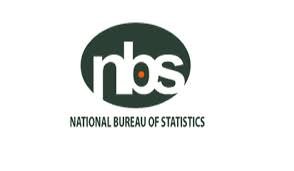The National Bureau of Statistics (NBS) has reported a significant increase in rural unemployment in Nigeria, with the rate climbing to 4.3% in the first quarter of 2024. This marks a 1.4% rise from 2.9% recorded in the first quarter of 2023 and a 0.3% increase from the third quarter of 2023.
The report, part of the Nigeria Labour Force Survey (NLFS), highlights growing difficulties in the rural labor market, with rising unemployment, a shrinking labor force, and ongoing underemployment. Rural regions are particularly affected by these changes, as evidenced by the drop in the overall labor force participation rate to 77.3%, down by 2.2 percentage points from 79.5% in Q3 2023.
“Despite the decrease, rural participation remains relatively high at 82.5%, compared to the 74.0% seen in urban areas,” the NBS report revealed. It also noted that the informality rate in rural areas stands at 97.6%, significantly higher than the 89.0% seen in urban centers.
Job opportunities in rural Nigeria have diminished, leading to a decline in the employment-to-population ratio, which fell from 75.6% to 73.2% in Q3 2023. In rural areas specifically, the rate dropped from 80.7% to 78.9%. Agriculture remains the primary source of employment, with 40.7% of the rural workforce engaged in farming activities.
The NBS attributed the rise in rural unemployment to mounting challenges in the agricultural sector, citing insecurity, climate change, and recurring flooding as key factors. These issues, particularly insurgency, banditry, and communal conflicts, have displaced many people, especially in northern Nigeria, forcing them off their farms and away from their primary sources of income.
The report also highlighted that the percentage of discouraged job seekers in rural areas increased to 5.0% in Q1 2024, up from 3.0% in Q3 2023. However, time-related underemployment, which refers to those working less than 40 hours a week but willing and available to work more, saw a slight improvement, falling to 11.8% from 12.3% in the previous quarter.
In response to the escalating challenges in rural areas, the International Monetary Fund (IMF) has called on Nigeria to expand its cash transfer initiative to address food insecurity and rural poverty. The IMF emphasized the need to include more rural communities in the program to ensure that vulnerable populations receive the necessary assistance.
With insecurity, climate threats, and economic challenges on the rise, the NBS report underscores the urgent need for targeted efforts to boost productivity and provide relief to rural communities.



